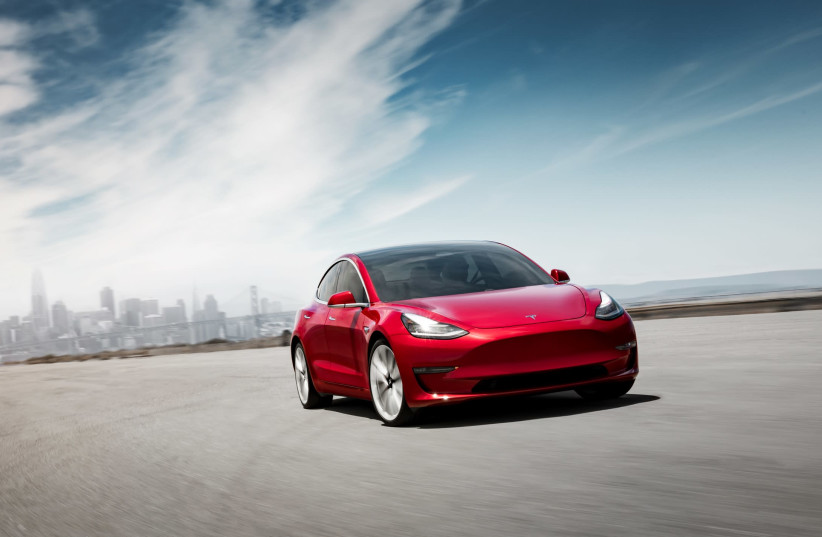The National Labor Court recently ruled that employees are taxable in full on the “usage value” of a company vehicle, no matter how slight the benefit may be (Berliner Elevators Ltd. vs National Insurance Institute). Although this was an NII case, it also is relevant for income-tax purposes since the reference was made to income-tax regulations.
Background
In Israel, as in many countries, driving a company vehicle is a taxable fringe benefit. In Israel, this means adding several thousand shekels to an employee’s monthly taxable salary and imposing taxes. Taxes means income tax and NII payments. The taxable amount of a fringe benefit, known as “usage value” (shovi shimush in Hebrew), depends on the model. You can look up the usage value by entering the model’s code number, which appears in the vehicle’s license document, at www.misim.gov.il.
Companies and freelancers can then deduct 45% of vehicle expenses and depreciation (15% per year), rising to 100% of the usage value on which employees were taxed.
But what if the vehicle is not a nice, smooth sedan, but rather more of a noisy, bumpy workhorse? And suppose any private use is marginal? Is the employee still taxable on the usage value? That was discussed in the Berliner case.

Facts of the case
In this case, the company concerned had three types of vehicle: (1) service vehicles “given” to employees, (2) two Toyota minibusses with seats removed to enable equipment to be installed, and (3) two vehicles driven by the company owners in their capacity as technicians, and hydraulic lifting equipment was fitted in those vehicles.
An earlier regional labor tribunal had issued a compromise ruling that under the circumstances, 50% of the usage amounts should be assessed to NII contributions. The company appealed this 50% decision, but it lost outright in the present National Labor Court.
The court judgment
The National Labor Court ruled against the company after reviewing the law in detail.
The Income Tax Regulations (Vehicle Expense Deduction), 1995, defines a “vehicle” as almost any type of vehicle weighing under 3,500 kilograms, owned or not, except a “work vehicle” under the traffic regulations, and it must be an “operational vehicle.”
An “operational vehicle” is either a security vehicle (as defined) or a vehicle that is not placed at the employee’s disposal, is used for the purposes of the employer or owner, is not at his/her home after work hours and does not leave the workplace. All these conditions must be met to avoid taxes on a deemed usage benefit.
The vehicles were “attached” to specific employees after work hours, and they were allowed to make private use of the vehicles, albeit limited use because of the equipment installed in them. They were used for short trips and not substantial trips or big touring trips (tiyulim) apparently, although no trip log was kept.
Given this, the court found that the vehicles were placed at the employees’ disposal, and they were sometimes located outside the workplace. Therefore, the employee tax-exemption conditions for an “operational vehicle” were not met.
The company had claimed that attaching the cars to employees enabled them to better serve the business and the good of its clients, as this enabled rapid arrival when clients called them regarding maintenance and operations of elevators (lifts). But such use fell outside the definition of “operational vehicle” in the tax regulations.
The court also said the tax regulations did not differentiate between different sectors and aimed for simplicity. Even if the employer benefited from attaching the vehicles to the employees, so did the employees gain a personal benefit, for example, during evenings, weekends and holiday periods, which is taxable under the regulations. And the owners should be subject to the same rules as their employees.
One unanswered question was whether the vehicles were “work vehicles” rather than “operational vehicles.” Since the question was not raised in time, it was rejected.
Comment: There have been earlier cases in which taxpayers unsuccessfully challenged in court the taxable “usage amounts” by keeping accurate travel logs. In practice, you should assume the usage amounts fixed in the regulations will generally be taxable, regardless of the actual business/private travel split. You can drive a company car to travel every weekend on vacation to Eilat, or no weekend at all, and still pay income tax and NII payments on the same deemed usage value. If you have use of the vehicle, that’s all that counts.
As always, consult experienced tax advisers in each country at an early stage in specific cases.
leon@h2cat.com
The writer is a certified public accountant and tax specialist at Harris Horoviz Consulting & Tax Ltd.
